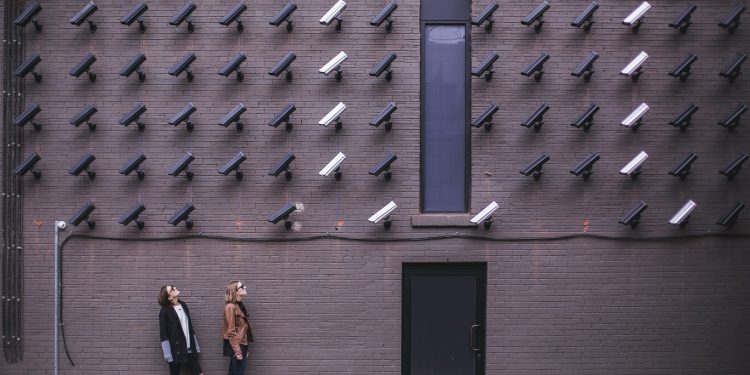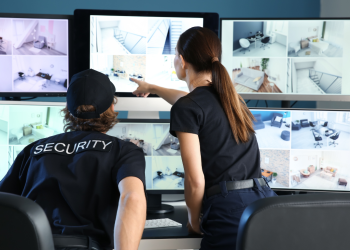What Are General Laws On Security Cameras For Homes?
There are no standard federal laws governing the installation and use of security cameras in residential settings- states, counties and cities across the US all have their own various regulations. Homeowners can utilize a reputable home security company familiar with their area’s legal requirements to correctly install any security system.
However, there are some basic national laws around privacy and consent that are foundational to the use of surveillance cameras:
First, US citizens are guaranteed a reasonable expectation of Privacy.
Security cameras that record video and/or audio should not usually be done in areas considered private places- bathrooms, bedrooms, changing rooms, locker rooms. If it is an activity that you would not normally do in public, such activity should not show up on home security footage.
In order to protect a citizen’s privacy, there are general laws for security cameras on the home. Outdoor security cameras should be positioned in public areas- such as your driveway, porch or yard- so as not to be considered an invasion of privacy. These porch or yard areas have no reasonable expectation of privacy. However, if you aim your security cameras directly into your neighbor’s bedroom or bathroom window, That is viewing a private area which does have an expectation of privacy.
Additionally, to protect privacy, there are general laws for security cameras in the home as well. For indoor home security cameras to not invade privacy, they should only be used in common areas of the residence. These common areas are rooms such as a kitchen or living room, not bedrooms or areas with a reasonable expectation of privacy.
Second, US citizens are guaranteed the right of Consent.
In All 50 States, if your camera audio picks up your neighbor’s conversation without their consent, this would be a legal violation. Consent laws on a national level mean that it is Not legal to record someone on audio without their permission. It is legal to record a conversation:
- A. In a “one-party consent” state or area – you only need one person’s consent to do so. You can be the person that consents, as long as you are part of the recording.
- B. In a “two-party consent” state or area, where recording can be done with BOTH parties consenting to the recording.
So all the general rules about use of security cameras are based on the concepts of Privacy and Consent.
California Law On Security Cameras
In 2021 comedian Kathy Griffin and her boyfriend Randy Bick ended up in a CA court, pitted against their Mezger neighbors. Griffin/Bick had complained to their HOA and police about their neighbor’s loud parties, and used their security camera footage as proof. The Mezgers argued their privacy had been breached, and sued for violation of privacy. The court ruled against the Mezgers, since:
“only a small portion of [the] plaintiffs’ backyard could be seen, plaintiffs and their guests could barely be seen, and the content of their conversations could not be discerned.”
The Mezgers lost their case for common law invasion of privacy in that they were recorded from a distance, as background to a camera intended to film Griffin’s own property for security purposes. There were unclear visuals of persons in the Mezger’s yard. Additionally since there were no distinctly audible conversations, there was no violation of CA Penal Code section 632, Subdivision a (“A person who, intentionally and without the consent of all parties to a confidential communication, uses an electronic amplifying or recording device to eavesdrop upon or record the confidential communication, etc….”).
This case revealed some of the legal aspects of security camera use in CA. Legal determinations are made based on the definition of common law invasion of privacy (intrusion into a private place, conversation or matter, in a manner highly offensive to a reasonable person). To determine violation, considerations are made about:
- The degree of intrusion
- The context, conduct and circumstances surrounding the intrusion
- The intruder’s motives and objectives
- The setting into which the intrusion occurs
- The expectations of those whose privacy is invaded
It is not against the law to use video surveillance cameras on (or in) your property for security. CA video surveillance laws give the right to protect your home via video surveillance, but draw the line at violating another’s privacy.
Surveillance is only illegal if:
The recording is an “invasion of privacy” -recording someone in a context where it would be reasonable for them to expect privacy. Take a nanny cam for instance. In CA you must advise caregivers or guests that you have recording devices in the common areas of the house- but not in private areas such as bathrooms, bedrooms or any space considered personal living space.
The camera is aimed at private locations, not pointed at your own property such as your garage, yard, driveway, or a public area in which no right to privacy exists. For instance, your outdoor security camera that looks at your own side yard is fine- a camera directly aimed into your neighbor’s bedroom window is not!
As a side note, CA specifically has numerous regulations for security camera use by CA businesses as well. For Customers, surveillance cameras must not be used in places where customers have a reasonable expectation of privacy- e.g. shower and locker rooms, restrooms, or changing rooms. Security must be customized to businesses where cameras cannot be employed.
Employees cannot be recorded by companies in their break rooms, and businesses must also advise workers when there are cameras in shared workspaces or public areas of the business. Employee union meetings and other organized actions cannot legally be recorded by businesses either. California also specifically regulates cannabis dispensaries, with legally mandated video surveillance. This is because dispensaries are heavily cash-based businesses, with a high likelihood of stealing taking place. Security cameras, along with trained and vetted security teams can be best utilized in these types of businesses.
This is a summary of the general legal aspects of using security cameras in home or work spaces. There must always be an understanding of privacy and consent. In addition, when using security cameras in California- there are area-specific regulations in place as well..














